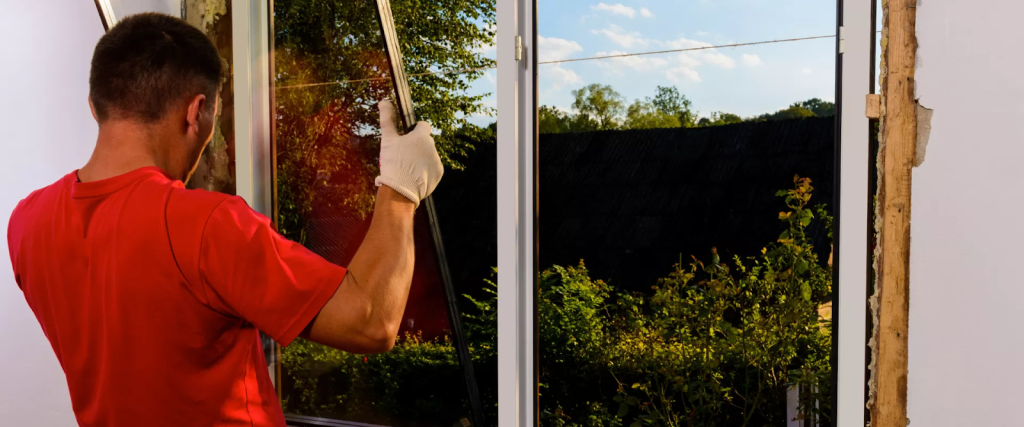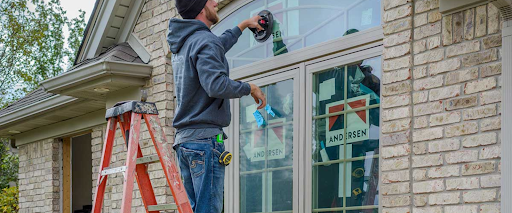Your home’s windows do more than let in light; they protect you from the elements, boost energy efficiency, and enhance curb appeal. Knowing when to replace windows ensures your home stays comfortable and stylish.
Selective Remodeling, a trusted name in Long Island home remodeling, specializes in helping homeowners make informed decisions about window replacement.
This guide explores the signs, timelines, and benefits of replacing windows so you can decide with confidence. Whether you’re noticing drafts or outdated designs, understanding when to replace windows in your home is key to maintaining their value and comfort.
Why Windows Matters for Your Home
Windows are essential to a home’s comfort, energy efficiency, and appearance. They provide natural light, ventilation, and insulation against weather changes. Over time, windows can develop issues like drafts, condensation, or difficulty operating, all of which affect comfort and raise energy costs. Recognizing when to replace them helps prevent long-term damage. A proper window installation ensures new windows perform efficiently, improving insulation, reducing energy bills, and enhancing both the function and look of your home.
Energy Efficiency and Cost Savings
Old windows often leak air, forcing your HVAC system to work harder. This increases energy bills. Modern windows with advanced insulation can save you money. If you notice rising utility costs, consider when windows should be replaced. Energy-efficient window options reduce heat loss in winter and keep your home cool in summer.
Enhancing Home Appearance
Windows impact your home’s curb appeal and interior vibe. Cracked, foggy, or outdated windows can make your home look worn. Upgrading to modern designs boosts aesthetics and property value. If your windows clash with your home’s style, it’s a sign to evaluate the window replacement timeline.
Signs It’s Time to Replace Your Windows
Several clear indicators signal when to replace windows in your house. Pay attention to these signs to avoid costly repairs or inefficiency.
Visible Damage or Wear
Cracks, warped frames, or foggy glass between panes are red flags. Damaged windows compromise insulation and security. If you spot these issues, it’s likely time to replace your windows.
Drafts and Poor Insulation
Feeling drafts near windows? This suggests poor sealing or outdated materials. Drafty windows increase energy costs and reduce comfort. If you’re wondering when windows need to be replaced, drafts are a strong indicator.
Difficulty Operating Windows
Windows that stick, won’t open, or are hard to close need attention. Struggling to operate them can also pose safety risks, especially in emergencies. If the operation is a hassle, consider when to replace windows to improve functionality and safety.
Increased Noise Pollution
If outside noise seems louder than usual, your windows may no longer offer adequate sound insulation. Older or single-pane windows often allow more noise to enter the home. Modern, energy-efficient windows are designed to reduce sound transfer, helping to create a quieter and more peaceful indoor environment, especially in areas with traffic, construction, or other consistent noise sources. Window renovation can significantly improve overall comfort.
When to Replace Windows in the House? Key Factors to Consider
Timing plays an important role when deciding the best moment to replace windows. Several factors can help determine the ideal window replacement timeline and ensure a smooth, efficient upgrade.
Age of Your Windows
Most residential windows last between 15 and 20 years, depending on the material and maintenance. If your windows are nearing or past this range, it’s a good idea to inspect them for wear or performance issues. Replacing aging windows can improve insulation, reduce drafts, and prevent future repair costs.
Seasonal Considerations
Mild weather in spring and fall typically provides the best conditions for window installation, making the process quicker and more comfortable. Extreme cold or heat can complicate the installation and impact indoor comfort during the project. Planning around the seasons can also help avoid weather-related delays and ensure better sealing conditions.
Home Renovation Plans
If you’re already planning home upgrades, replacing windows at the same time can be a smart move. New windows can improve insulation, enhance visual appeal, and increase the overall value of your renovation. Combining window replacement with other renovations can save time and streamline your overall project.
Benefits of Timely Window Replacement
Replacing windows at the right time offers a range of advantages, from energy savings to greater home comfort and resale value.
Improved Energy Efficiency
Modern windows are built with features like double-pane glass, insulated frames, and low-emissivity (low-E) coatings. These materials help reduce heat transfer, keeping indoor temperatures stable and lowering energy bills throughout the year.
Increased Home Value
Upgraded windows enhance your home’s appearance and appeal to potential buyers. Energy-efficient and well-designed windows are often seen as a valuable investment, especially when preparing a home for sale.
Enhanced Comfort and Safety
New windows can significantly reduce drafts, outside noise, and heat loss. Many models also include updated locking systems and durable frames that contribute to better home security. For everyday living, properly sealed and insulated windows help maintain a more peaceful and comfortable indoor environment.
Enhanced Comfort and Safety
New windows eliminate drafts, reduce noise, and improve security with modern locking systems. If you’re questioning when windows should be replaced, consider how new windows enhance daily living.

How to Choose the Right Windows for Replacement
Selecting the right windows involves finding the best balance between design, performance, and budget. Here are two key factors to consider:
Window Types and Materials
Different window styles, such as double-hung, casement, sliding, or awning, serve different functional and aesthetic purposes. Materials like vinyl, wood, and aluminum each offer unique advantages in terms of durability, insulation, and maintenance. Choosing the right combination depends on your home’s architecture, climate, and personal preferences.
Professional Installation Matters
Even the best windows won’t perform well if they aren’t properly installed. Poor installation can lead to air leaks, water intrusion, and reduced energy efficiency. Hiring experienced professionals ensures that the windows are fitted correctly, sealed properly, and built to last, helping you get the full benefit of your investment.
Conclusion
Recognizing when to replace windows in your home is key to maintaining comfort, efficiency, and long-term value. Signs like visible damage, drafts, or rising energy bills are often indicators that your windows are no longer performing as they should. Replacing them at the right time can improve insulation, reduce outside noise, and enhance both the appearance and functionality of your living space.
Whether you’re planning a full renovation or simply addressing aging fixtures, timely window replacement ensures your home stays energy-efficient, secure, and comfortable for years to come.
Schedule the consultation and discover professional window installation on Long Island.
FAQ
How often should windows be replaced?
Windows generally last between 15 to 20 years, depending on the material, climate, and how well they’re maintained. Signs like drafts, condensation between panes, or difficulty operating them may indicate it’s time for a replacement.
Can windows be replaced in winter?
Yes, window replacement can be done in winter, though spring and fall often offer more ideal weather conditions for quicker and more comfortable installation.
How do I know if my windows are energy-efficient?
Check for features such as double- or triple-pane glass, low-emissivity (low-E) coatings, gas-filled panes, and ENERGY STAR certification. These features help reduce energy loss and improve overall performance.
What’s the cost of window replacement?
The cost varies based on factors like window style, size, materials, and labor. Getting multiple quotes and consulting a professional can help you understand your options and set a realistic budget.

